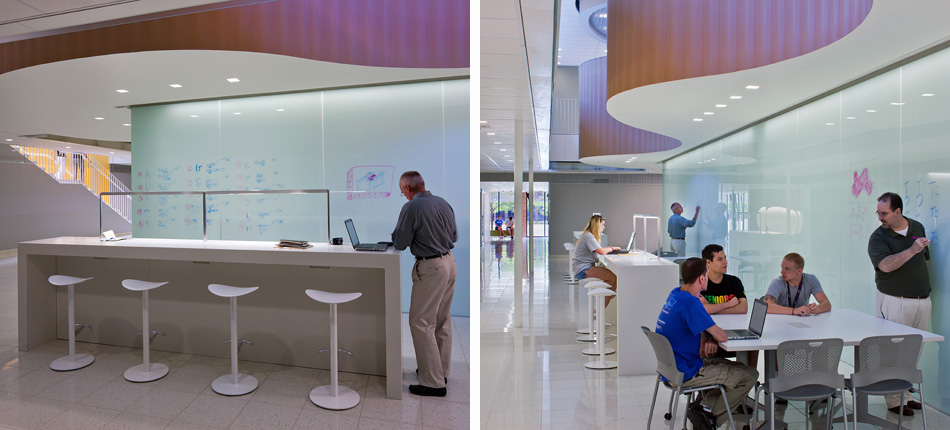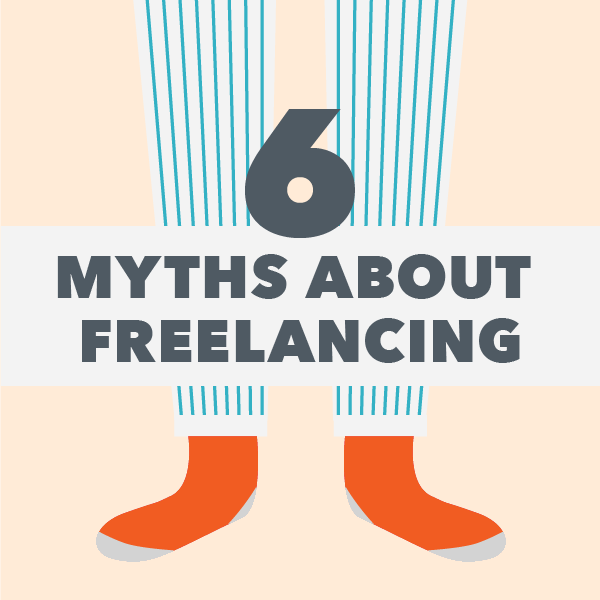
There are always peaks and valleys in the work of an architectural firm. Sometimes we work on multiple projects at different phases. Other times we are focused on a single project. Design Development and Construction Documents phases can be exceptionally hectic, with deadlines looming.
There are many reasons to pursue a career as an architect on a project basis. Perhaps you are looking for a way to accelerate your career growth, or you want to avoid pigeonholing into one particular type of architecture. Either way, working on back-to-back projects at different firms can give you the necessary experience to be more marketable than your peer group.
Most architects begin their careers working at one firm for several years. However, there are many benefits to pursuing a career as an architect on a temporary or project basis. Here are just a few:
1. You will gain experience working on a variety of different types of projects.
2. You will have the opportunity to work at different firms, each with a unique culture and approach to architecture.
3. You will be able to build a network of contacts across the industry.
4. You will develop a more marketable portfolio because of your diverse experience.
Job Seekers
CFA is a full-service placement and recruiting firm. Our recruiters will help you find the perfect new job and career. We work with top companies in various industries and can connect you with opportunities that best match your skillset and goals. Whether you’re looking for a new challenge, higher compensation, better use of your skillset, growth potential, or a better work/life balance, CFA can help you find the right fit for your design sensibilities.
If you’re passively searching or already in the job market, submit your resume today, and one of our experienced recruiters will reach out to discuss available opportunities.
CFA also offers various other services to job seekers, including resume writing, interview coaching, and salary negotiation assistance. We can help you at every step of your job search, from finding the right opportunity to nailing the interview and negotiating the best possible salary.
CFA quickly became the industry leader in flexible hiring, full-time freelancing, and project consulting. Our years of experience and commitment to quality have made us the go-to source for architecture and interior design talent. We offer a wide range of services to meet the needs of our clients, and our team of experts is always available to help you find the right solution for your project.
Since its founding, CFA has helped thousands of architects and interior designers find their ideal job placements. We take pride in our reputation as one of the industry’s most respected and trusted names.
If you’re looking for a trusted partner to help you with your next project, look no further than CFA. We have the knowledge and experience to get the job done right, and we’re always here to help you find the perfect solution for your needs. Contact us today to learn more about our services and how we can help you succeed at 212-532-4360 or email your resume and portfolio to recruiters @ cons4arch. com
ABOUT THE AUTHOR
After working at various design practices on a full-time and freelance basis and starting his design firm, David McFadden saw a gap to fill in the industry. In 1984, he created an expansive hub for architects and hiring firms to sync up, complete projects, and mutually benefit. That hub was Consulting For Architects Inc., which enabled architects to find meaningful design work while freeing hiring firms from tedious hiring-firing cycles. This departure from the traditional, more rigid style of employer-employee relations was just what the industry needed – flexibility and adaption to current work circumstances. David has successfully advised his clients and staff through the trials and tribulations of four recessions – the early ’80s, the early ’90s, the early 2000s, the Great Recession of 2007, and the Pandemic.
Project Based Work
|
architects, architecture, Careers, Consulting For Architects, flexible, freelancing, Interviewing, jobs, opportunities, pandemic, Project based, recruiters, resume, salary, workforce, worklifebalance, writing
|

December 7, 2021 – Freelancers and Independent Contractors Beware: Build Back Better Vows to Impose the PRO Act Which Threatens Your Livelihood
The freedom to work as a freelancer or independent contractor provides flexibility for households and vibrancy to the American economy. It is tailor-made for architecture and design practices and freelance architects seeking to fill the peaks and valleys standard in architecture practices.
The PRO Act bans Right to Work laws nationwide. Still, it also imposes the same independent contractor/freelancer-destroying policies of California’s AB5 law, which has destroyed countless lives and driven people out of the Golden State.
Freelancers and independent contractors want to be their bosses. AB5 and the PRO Act dictate they must have a boss. Households need greater flexibility than ever after the changes brought about by COVID in the workplace.
I have been fighting my whole professional career for the right to freelance and become an independent contractor. We need to rally the political wing of AIA.org and ask their Advocacy group to engage and lobby against this provision of the Build Back Better bill.
Act Now Contact Sarah Dodge, AIA, Senior Vice-President of Advocacy & Relationships, and ask her to put the full force of the AIA’s advocacy group behind removing the AB5 provision out of Build Back Better!
[email protected]
Partial hat tip to the Freelancers Union
Freelance Community
|
AB5 Law, AIA.org, American Institute of Architects, architects, architecture, architecture practices, Build Back Better, Consulting For Architects, COVID, David McFadden, design, economy, Freelancers, freelancing, Independent Contractors, jobs, Livelihood, Pro Act, Workplace
|

Reasons to be self-employed add up to 55! Taken by a poll of its readers, this list of reasons to be self-employed is the most thought out I have seen. It was written by By: Jennifer Good for The Self-Employed Website.
Being self-employed is one of the truest forms of freedom. In fact, when we polled TSE readers, flexibility and freedom were the number one responses as to why they loved being self-employed. While those reasons are often the tipping point for becoming “jobless,” there are indeed many other benefits to working for yourself.

To celebrate the lifestyle of the entrepreneur, here is a list of our favorite reasons it’s better to employ yourself:
- Set your own hours.
- You are your own boss.
- Opportunity to make unlimited income.
- Can work from home.
- Can work literally anywhere.
- Are able to put family priorities first.
- You get the value that you create for yourself.
- You don’t just work for a paycheck.
- No office or corporate politics to deal with.
- Able to do something you are passionate about.
- Great tax benefits.
- Can work in your pajamas if you want to.
- No more dealing with traffic if you don’t want to.
- Take vacation or sick time whenever you need to.
- In today’s economy, being self-employed can have more job security than a traditional job.
- True control of your finances.
- You are able to do work you find truly rewarding.
- Learn more about yourself than any other “job” experience might offer.
- True flexibility in everything you do.
- Opportunity to surround yourself with people who you like to work with.
- More opportunities to spend time on perfecting your skills.
- Work doesn’t feel like work.
- Spend a few years working your butt off to reap rewards other people only dream of.
- Every day can feel like an adventure.
- You will get along with everyone in your office.
- Only you need to believe in yourself. You don’t have to sell your ideas or vision to higher-ups.
- Solopreneurs – You’ll always be employee of the month!
- You can set up your office however you want.
- Limit the amount of time you spend trading dollars for hours.
- Get paid while you’re sleeping with passive income opportunities.
- Gaining real world experience that will help your business versus limited job-only experience.
- Having a job can be more risky than being self-employed.
- You can fire your clients or customers if you don’t like them.
- You are not limited to the money you earn each paycheck.
- You are more likely to hang out with other entrepreneurs to help fuel the idea fire.
- Every day is like a new challenge – a chance to grow as a person.
- You can do something you’ve always dreamed about doing.
- You will be able to spend more quality time with your family.
- You can take control of your own personal and career development.
- You could become a thought leader for your niche.
- The more you put into your business, the more you will get out of it.
- You will be able to create a feeling of pride around your business and your accomplishments.
- You can earn as little or as much as you want.
- You will have more freedom to work, play or rest when you want to.
- You will have ultimate control over what projects you work on.
- Being self-employed is the ultimate DIY project.
- Have true control of your future.
- Can create multiple revenue streams.
- Your daily work can be as varied as you desire.
- You earn your income everyday.
- You can be yourself.
- Busy times are something you look forward to when you’re self-employed.
- Get to meet new people that you might not have in a typical job environment.
- You work to create results, not to impress people.
- You are 100% in control.
Weigh In: What’s your favorite reason for being self-employed?

Author: Lindsay Van Thoen December 20, 2013; for the Freelancers Union
What happens when you tell someone you’re a freelancer?
In my experience, you’ll probably get some version of the following:
1. “I wish I could work in pajamas and sleep in every day!”
There may be some freelancers who don’t have to leave their house, spend their days watching Mad Men reruns, and only work 4 hours a day — but honestly, I haven’t met one yet.
Most freelancers are too busy going to client meetings, meeting with prospective clients, working out of the client’s office, going to networking events, working around their families’ schedules, and, you know, running their own business.
The idea that freelancers are sloppy and carefree somehow implies that freelancers just don’t work as hard as 9-5-ers. Not true!
2. “Ugh, the economy is so tough.” (I.e., freelancing is not a real job or people are only freelancers because they can’t find a real job.)
While it’s true that many traditional workers didn’t start freelancing by choice, it doesn’t mean that freelancers are poor, miserable souls who can’t wait to crawl back to corporateville.
Many freelancers either go independent by choice or find they like freelancing better, whether it’s because of more autonomy or better work/life balance or a host of other reasons that don’t involve desperation and agony.
It’s true that freelancing still doesn’t have the status of a C-level position in most fields. I expect that as more workers go freelance, a more realistic perception will develop: there are bad freelancers and good freelancers, happy freelancers and miserable freelancers, experienced and inexperienced.
We’ll soon see workers as whole people with a set of skills and services, not as the position they’re in.
3. “It must be so nice to never have anyone order you around!”
Wouldn’t it be great if this were true?
It’s true that freelancers are their own bosses — but sometimes, to maintain a good client-freelancer relationship, you have to let the client have what they want.
The best clients do say: “Here is the task I want, here are my expectations, I trust you to complete it well.” There are also clients who micromanage you the whole way. And a whole host of other people who think “freelancing” means “lowest rung on the totem pole that I can treat any way I want.” This is where freelancers have to educate clients about proper relationships and expectations.
4. “You must always have such exciting work!”
One of the best things about freelancing is that, to a certain extent, you get to choose the projects you’ll work on. If you work in a creative field, you’ll also be able to develop your own unique style/niche/speciality, so that people who come to you want YOU, and let you be your whole self.
But there are going to be boring days. There are going to boring projects or boring revisions or boring accounting.
Also, some freelancers are happier doing work they’re good at for steady clients than having constant new/exciting projects. They love the time they have with their family and they love the flexibility more than they love every single project they work on.
5. “Freelancers pad their invoices — you can always get them to negotiate down their fees.”
You probably won’t hear anybody say this to your face, but they will say it behind your back!
First, many freelancers are actually undercharging for their services. That’s because many people who go into freelancing assume that they should charge the hourly rate they got when they were an employee.
No. You need to charge that hourly rate, plus what you used to get for benefits that you now have to pay for yourself (~20-30%), plus an estimate of how much time it takes to land the client and ancillary things (like invoice filling), plus any equipment costs (like computers). This is an accurate representation of your value, not padding.
Freelancers who undercut the market rate hurt all freelancers and set expectations for cheap work.
6. “I could never freelance — I have too many financial obligations. It’s so insecure!”
The truth is that every job is insecure. Markets change, companies close or downsize.
The only security you have is the ability to provide a service of value that someone is willing to pay for. Your security is you. This isn’t a mindset, it’s a set of actions — all of which are easier said than done.
Smart freelancers make themselves recession-proof by having multiple income streams, constantly marketing themselves and forming new connections, and staying flexible by learning new skills, new programs, new fields.
When the economy leaves a smart freelancer in the lurch, he/she can pivot skills or rely on another income stream. Traditional employment can give one the illusion of stability, and that in itself is pretty risky!
What other myths about freelancing have you heard?












